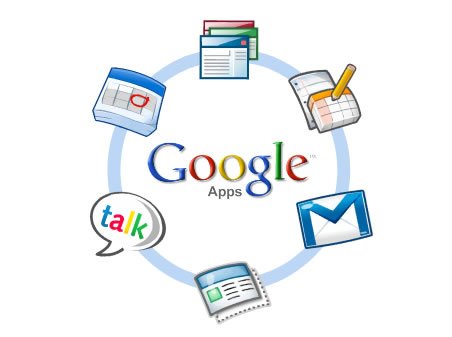The Internet has been abuzz with Google’s announcement of Buzz, their new social networking platform that they just announced about a day ago.
Of course, Facebook is the king of the hill in the social networking space that Google is going after.
Reams of commentaries and news analysis has been written about this — here are some excellent ones by PC Mag and TechCrunch — so I’m not going to delve into the history and just go straight to the point with my comments.
With Buzz bundled in Gmail natively, my gut feel is that it has a good chance of taking off, especially with the huge Gmail install base. Went to the Buzz website to find out more, but apparently it’s not available for Singapore yet.
Here’s their statement on the site:
We’re still rolling out Buzz to everyone, so if you don’t see it in your Gmail account yet, check back soon.
*Update*: It’s now up for me. That was fast!
That’s about it for the newspoint. The story I really want to write, however, is how Google has been taking over all the tools I’ve been using.
My seduction by Google
I’ve been happily seduced by Google’s great applications thus far — I couldn’t survive without Google search and Gmail as a freelance journalist — but I can’t help but feel a little perturbed that Google has become so pervasive in my life.
I’m on an Android mobile phone. Now Android is the open-source mobile platform by Google, and it’s being supported by many phone manufacturers. It’s great for its integration with Gmail, which I use as my primary email. My copy editor IMs me on Google Chat, which pings me on my phone immediately.
I’m a huge fan of Gothere.sg, a local Singaporean map provider, but Google has too much integration to their cloud for me to fight, and unfortunately their apps are good. Google maps is easy to use on Android. There’s Latitude, where I can see where my friends are at.
Alf was just showing me his use of Google calendar, which is useful if you have to add in a friend’s calendar to coordinate meetings. Both Microsoft Outlook and Apple’s iCal calendaring apps predate Google’s calendar by years, but Google’s cloud version really makes it easy to share.
I’m mainly a Firefox user. Tried Chrome when it first came out, felt it wasn’t polished enough, so quit and went back to Firefox. A tech friend of mine persuaded me to try it again recently when I got my new PC, and the experience has been pretty good. So now I use Chrome and Firefox interchangeably. Sigh. Again, seduced by Google.
This website wouldn’t get half its hits if we weren’t aggregated by Google News. We’re also pretty reliant on Google Analytics to get stats on our site, and I’ve played with the Web Optimizer. All good products.
I use Google Reader to browse my favourite RSS feeds. I don’t really use much of Google Docs except to read the occasional attached document in Gmail and I want nice formatting.
However, when I needed to collaborate with friends on a spreadsheet — a mundane project on estimated costs for our US road trip this May — my friend went with Google Docs to sync up our thoughts across two continents. Again, it’s nothing new, and Microsoft has been doing this for years in a business environment, but it drives home the power of the cloud and the install base of Google.
YouTube. Google Voice. Piccasa. Google Earth. It’s an endless list of apps that I’ve used or tried.

It is unlikely that you’ve not been touched by Google in some way. “Just Google it” has been etched into our everyday lexicon, and is an extremely powerful meme for search: Find that song lyrics, cool movie trailer, or latest news.
Google is everywhere it seems. Except China, where there are Chinese analogues like Baidu (Google Search), TuDou (YouTube), and Kai Xin Wang and Ren Ren Wang (Facebook). I’ve not done a thorough Google search(!), but I’m sure there are other language-specific analogues that tackle their home markets as well.
And that’s probably not such a bad thing. It’s good to have alternatives to the tech giant even if those are smaller and more niche. Google is a listed corporation after all, despite their “Do No Evil” motto.
…And back to the newspoint
If you’re still with me after that long personal rambling story, that is why I think with Buzz bundled into Gmail’s install base, FaceBook is in for a fight.
Now I’m a user of FB. I think it’s a great product for social chitchat and games, and I love it for its ability to organize events.
But as a journalist I would often end my tech stories by saying never discount Microsoft / IBM / Cisco / Oracle / HP, and now especially Google. Because these companies have tons of money that they can bleed oponents dry, even if you have the better product.





Google is amazing, in fact i’m writing this comment from a google nexus1!
Yahoo! has something similar – since today I keep getting a box in Yahoo! Mail urging me to share my updates with connections and such. But it seems they are not really creating a buzz like Buzz, let alone FaceBook or Twitter.
http://www.siliconbeat.com/2010/02/09/how-google-buzz-mimics-yahoos-social-strategy-and-other-things-you-thought-youd-never-see/
http://googleVSfacebook.com
Buzz on mobile is different, it lets you send mobile “Twitters” with no letter restrictions and search for nearby buzzes as it incorporates location-based services into it. The concerns about Buzz however is all about privacy.
@ Hectorgon
Ah. Been using my comp all day today so didn’t use my mobile to check mail.
In any case the point is moot because Buzz is in available on my Gmail already. 🙂
Singaporean have been using the mobile version of buzz all day down town plastering the map with local buzz try it on your smart phone